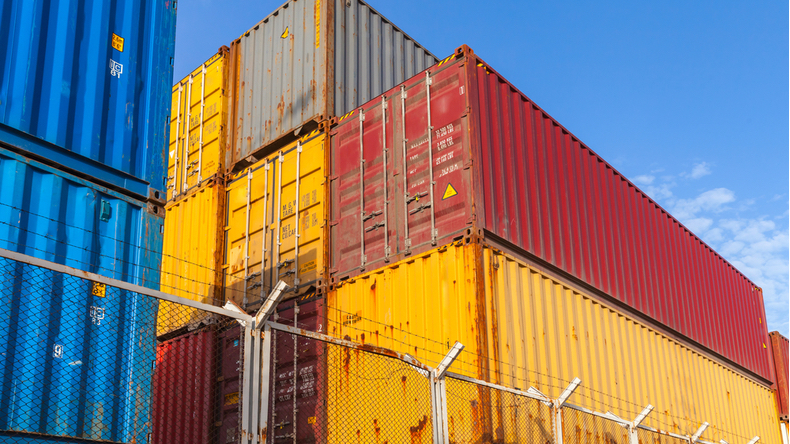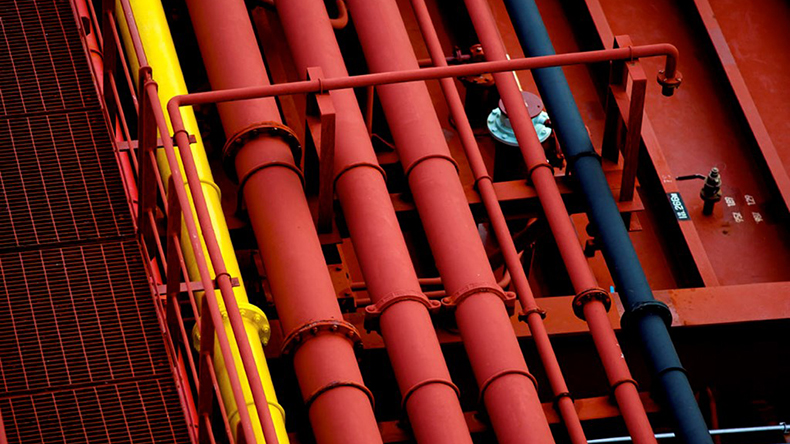Weekly briefing: Container results show early pandemic toll; tanker rates pressure
Outlook for containers sector remains murky, crude production cuts coming quicker than anticipated, short term picture is weak for dry bulk market
Blanked sailings and cost cuts have lessened the impact of the coronavirus pandemic on container company finances so far, but a much weaker second quarter is expected. Meanwhile, floating storage may have peaked but the longer term outlook for tankers is positive
THIS weekly briefing provides sector-by-sector coverage of the coronavirus outbreak and its impact on shipping, direct from the Lloyd’s List team.
Follow the links within the text to the relevant news items in each market segment.
Containers
With the bulk of the major publicly listed container lines now having reported their first quarter results, the financial cost of coronavirus to carriers has begun to become apparent.
To date, it should be said, that impact has not been too great. Maersk reported stable revenues despite slightly lower volumes and turned last year’s underlying loss into a profit during the first quarter.
Hapag-Lloyd saw its figures go in the opposite direction, seeing its net result slump by three quarters to €25m ($27m). Elsewhere, its partner in The Alliance, HMM, narrowed its losses, while Yang Ming increased its first-quarter losses after two consecutive loss-making years.
But underlying all this is the fact that these results only cover the period from the beginning of January to the end of March. January was the same as any other January. February saw supply-side issues emerging in China as the what was then still a local epidemic led to factory closures. It was only in March that the spread of coronavirus became a global issue.
Hence it was more the outlooks than the reporting that were of interest, but here the picture gets murky, which is understandable as few crystal balls could foresee what the impact a shutdown of the world’s major economies would entail.
Maersk said visibility remained murky for the second quarter but warned volumes could be down by as much 25% over the three months from April to June. At Hapag-Lloyd, the outlook was little better, although it said the lower end of its earnings expectation for the year could still be achievable.
What was apparent, however, was how fast lines had managed to match capacity to meet hollowed-out demand. Blanked sailings had reduced the number of available slots, meaning that freight rates have stood up despite the lower volumes being carried, which Drewry forecast would be down by 8% this year.
Those blankings, however, have now reached their peak, at least in terms of announcements. While some European economies are slowly lifting their lockdowns to some degree, the impact of coronavirus on demand for containerised goods is nowhere near being over, particularly as deep recessions loom on the horizon.
Further blanking will likely be needed beyond the second quarter, the quarter in which carriers will feel the full impact of the pandemic.
Tankers
Faster than anticipated crude production cuts and inventory draws will put pressure on the tanker market in the coming weeks but longer term fundamentals for the sector are robust, according to Frontline.
The New York-listed owner, which has posted its best quarter since 2008, said market participants had been surprised by the speed and depth of the recent oil demand recovery given the state of the market less than a month ago.
The International Energy Agency warned last week that floating storage has peaked as global oil production cuts have accelerated in May.
“Destocking of inventories will reduce absolute demand for seaborne transportation of crude as well as refined products. The pace at which oil demand recovers will be a determining factor for how long this inventory draw period lasts,” Frontline said in its earnings report.
Meanwhile, China Merchants Energy Shipping and Cosco Shipping Energy Transportation, two of the world’s biggest owners of very large crude carriers, have put their name to a white paper promoting the use of blockchain applications to increase efficiency and security in the oil sector.
The initiative envisages a digital platform that incorporates all the key stakeholders in the supply chain of the energy and petroleum industry — including oil companies, trading houses, pipeline operators, ports, shipping firms, financial institutions and regulators — to streamline the processes involved.
The paper said that tanker shipping firms are in the middle of the industry’s supply chain and are required to provide more secure and transparent services. But at the same time, they have large funding needs, which can be difficult to meet using traditional tools such as corporate guarantees, vessel collateral and project financing.
CMES has also firmed up orders for two eco-design VLCCs at Dalian Shipbuilding Industry Co, according to an exchange filing.
One of the 307,000 dwt pair this time will be fitted with a hard-sail propulsion system used to generate extra thrust and save fuel consumption for the vessel, a technology that the builder had already tested on a CMES VLCC last year, said the Shanghai-listed shipowner.
The two vessels, which CMES claims can reduce fuel consumption by 5-7% compared to similar types built in 2018-19, are scheduled for delivery between July and September 2022.
Finally, pirates attacked the UK-flagged chemical tanker Stolt Apal off the coast of Yemen in the Gulf of Aden on Sunday.
According to Lloyd’s List Intelligence, the vessel’s armed guards exchanged fire with two skiffs manned by six armed pirates, who approached the vessel at high speed in the westbound transit corridor of the International Recommended Transit Corridor.
The vessel’s guards disabled one skiff and ended the pursuit. There were no injuries on board, and only the vessel’s bridge area sustained minor damage from bullets.
Dry Bulk
There was more bad news for dry bulk sector in the past week, and the outlook is poor for the short term at least.
The Baltic Capesize Index went below zero again before rates inched up to 26 points following better than expected industrial output figures from China, the world’s biggest importer of iron ore.
But it was tempered by the ongoing production shutdowns in South Africa and Canada, while concerns are mounting over Brazilian supply as well.
A slowing grains market is also expected in the coming months as the transition from the South American to the US season starts.
Volumes of soyabeans from the east coast of South America heading to the Far East have been up this year but the outlook up until the end of July is “negative” for the market, according to Torvald Klaveness head of research Peter Lindstrom.
Shipments should pick up again from August when the US season starts, provided China continues to buy in grains to replenish stocks. It is looking likely that they will, as Chinese importers reportedly bought 240,000 tonnes of US soyabeans for loading in July, with a further 1m tonnes likely in the second half of the year.
Meanwhile, Greek-owned EuroDry, which owns seven bulkers, is talking to its banks about a possible rescheduling of near-term payments.
“Countries have only timidly started reopening their economies and as a result, we anticipate that we will continue experiencing low charter rates and low demand well into the next few months,” chief executive Aristidis Pittas said as the company unveiled a first-quarter loss.
One bright spot, however, is that steady coal flows out of Indonesia have boosted supramax bulker earnings in the Pacific Basin, outperforming the rest of the market and providing support to the Baltic Dry Index.
Ask the Analysts webinar
Following on from last month’s webinar in which we offered the shipping industry the opportunity to ask our experts any questions on any aspect of the industry’s currently turbulent agenda, the team will be back on Thursday, May 28 at 1600 hrs Singapore time / 0900 hrs UK time to answer more of your questions.
This month we are focusing on Asia, although we will happily take your questions on any aspect of the industry.
The coronavirus outbreak has severely impacted the whole shipping sector, cutting turnover and raising the spectre of large reductions in the workforce and investment, but in Asia there is at least some sense of optimism, so we are intrigued to see what topics you will be directing us towards this month.
So far, we have received your questions on everything from the financing power behind China's lead in yard race to the fate of Asia’s seafarers as the industry struggles to smooth out crew change restrictions.
You can add your questions by registering for the free webinar here or by clicking on the banner below.
The full panel is below:
-
Richard Meade, Editor, Lloyd’s List
-
Vassilis Mitrelis, Credit Risk Manager, Lloyd’s List Intelligence
-
Vincent Wee, Asia News Editor, Lloyd’s List
-
Cichen Shen, China Editor, Lloyd’s List
-
Hwee Hwee Tan, Senior Correspondent, Lloyd’s List
-
Inderpreet Walia, Dry Bulk Reporter, Lloyd’s List



